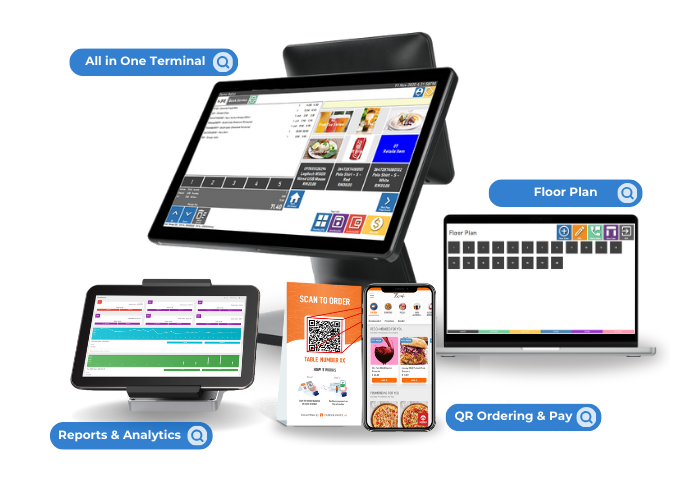The story of POS systems begins in the late 19th century with the invention of the mechanical cash register. Introduced by James Ritty in 1879, this device was initially created to prevent employee theft in his saloon. Known as the “Incorruptible Cashier,” Ritty’s invention provided a way to track transactions and protect profits.
While rudimentary by today’s standards, these early machines laid the foundation for accountability and record-keeping in businesses. By the early 1900s, the National Cash Register (NCR) company had refined the design, adding features like paper receipts, which were a significant step toward more sophisticated transaction management.
The mid-20th century marked the next big leap with the advent of electronic cash registers (ECRs). These machines replaced mechanical gears with electronic components, enabling faster and more reliable operations. In addition to tracking sales, ECRs introduced the ability to calculate taxes automatically, a crucial feature as economies and tax codes became more complex.
The 1970s saw further advancements with the integration of barcode scanners and magnetic card readers. These innovations simplified inventory management and allowed businesses to offer faster checkout experiences. Retailers began to recognize that their POS systems could do more than process payments—they could provide valuable data to improve inventory control and customer service.
The rise of computers in the 1980s and 1990s transformed the POS landscape entirely. Software-based POS systems emerged, offering unprecedented functionality and flexibility. Businesses could now track inventory in real-time, generate detailed sales reports, and integrate customer relationship management (CRM) tools.
For restaurants and cafes, the introduction of touch-screen POS systems in the 1990s was a game-changer. Servers could input orders directly into the system, reducing errors and improving service efficiency. Meanwhile, retailers embraced systems that could analyze sales trends and forecast demand, helping them optimize stock levels and reduce waste.
In the 21st century, cloud technology revolutionized the POS industry once again. Cloud-based POS systems allow businesses to access their data from anywhere, enabling multi-location management and seamless updates. These systems are particularly beneficial for small and medium-sized businesses, offering scalability and reduced upfront costs compared to traditional hardware-heavy systems.
Mobile compatibility became another major milestone. Businesses can now use tablets or smartphones as portable POS devices, creating more flexible and customer-friendly payment options. For example, tableside ordering in restaurants or pop-up shops at events have become practical and efficient with mobile POS setups.

As technology continues to advance, the future of POS systems promises even greater innovation. Artificial intelligence (AI) and machine learning are already being integrated to provide predictive analytics, personalized customer experiences, and advanced fraud detection.
Contactless payment methods, driven by NFC (Near Field Communication) and QR codes, are gaining popularity, particularly in the post-pandemic world. These technologies enable faster, safer, and more hygienic transactions, catering to evolving consumer preferences.
The evolution of POS systems is more than a tale of technological innovation—it’s a story of how businesses have adapted to meet changing consumer demands. Modern POS systems have become central to business operations, helping companies streamline processes, improve customer experiences, and make data-driven decisions.
From the mechanical cash register to cloud-based and AI-powered solutions, the journey of the POS system underscores its vital role in better business management. As businesses look to the future, their ability to leverage the full potential of POS technology will be a key determinant of success in an increasingly competitive and dynamic marketplace.

 Philippines
Philippines